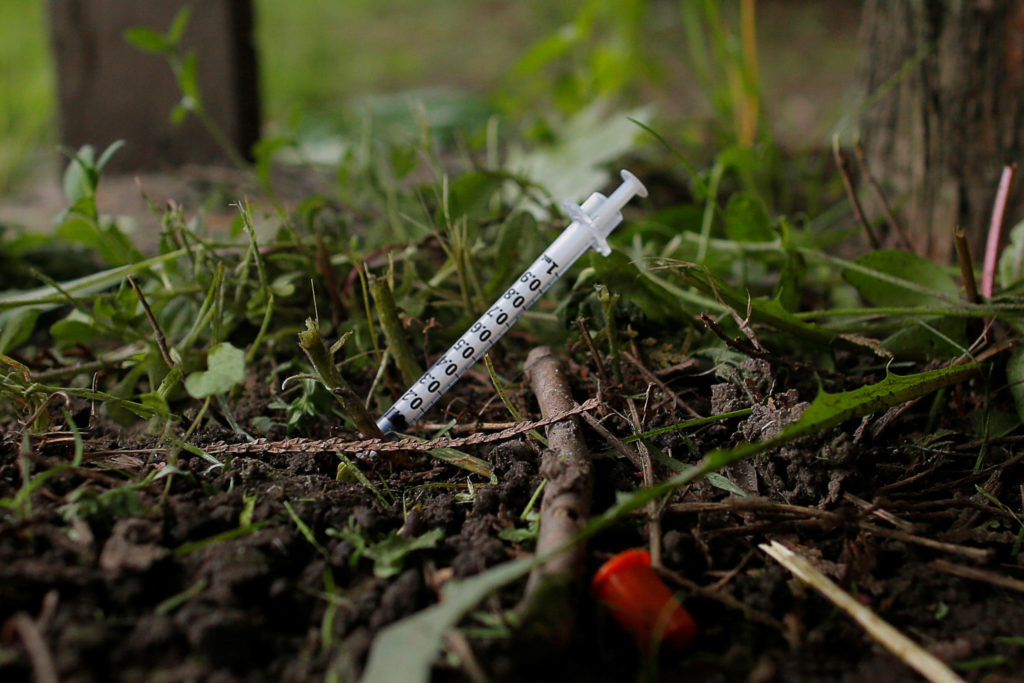CHARLESTON, W.Va. (AP) — People who inject drugs in West Virginia’s largest county should have expanded access to sterile syringes, testing and treatment in response to one of the nation’s highest spikes of HIV cases, according to federal and state recommendations released Tuesday.
The report released by the Centers for Disease Control and Prevention, the state Department of Health and Human Resources and Kanawha County’s health department comes amid a new state law that tightens requirements for needle exchange programs.
Other guidance resulting from the CDC investigation includes getting the community involved in addressing the HIV outbreak and doing more analysis of public health data to understand the extent of injection drug use in Kanawha County.
The agency also recommends expanding and improving so-called harm reduction programs that connect people with substance abuse treatment, recovery support and other health services. And it outlines actions that should be taken by agencies such as health departments, social services, clinical and correctional settings, and public safety.
Dr. Ayne Amjad, the state’s health officer, said in a statement that the Bureau for Public Health is committed to assisting the community in keeping infection rates as low as possible. She said the state “will continue to work with its partners to implement innovative approaches to delivery of prevention and care for people who inject drugs.”
WATCH: After 40 years of AIDS, progress has been made but major problems remain
The report found that there were 63 new intravenous drug-related HIV cases in Kanawha County from January 2019 through May 13 of this year. Before 2019, the average number of such cases in the county was less than five per year.
The surge was attributed at least in part to the cancellation in 2018 of a needle exchange program in Kanawha County. Such programs for controlling disease outbreaks among intravenous drug users exist in dozens of states, but they are not without their critics, including in West Virginia, who say they don’t do enough to prevent or stop drug abuse.
Last month a preliminary report released by the CDC found emergency departments and inpatient medical personnel rarely conducted HIV testing on intravenous drug users in the county, which includes the state capital of Charleston and has 178,000 residents.
Republican Gov. Jim Justice signed a bill in April to put more stringent requirements on needle exchange programs, which opponents said would make it harder to get clean needles amid the HIV spike. A federal judge last month denied a request by the American Civil Liberties Union’s West Virginia chapter to issue a permanent injunction.
Under the law, operators of syringe collection and distribution programs would have to offer an array of health outreach services. Participants must show an identification card to receive a syringe, which must to be marked with the program passing them out. Another provision would give local governments the authority to bar certain groups or providers from setting up a needle exchange program.













































